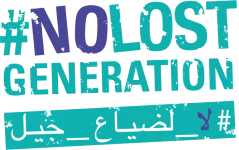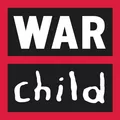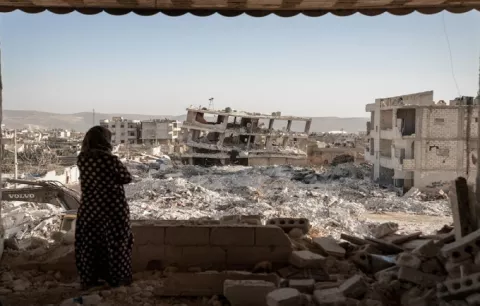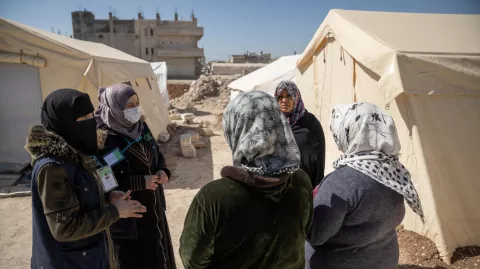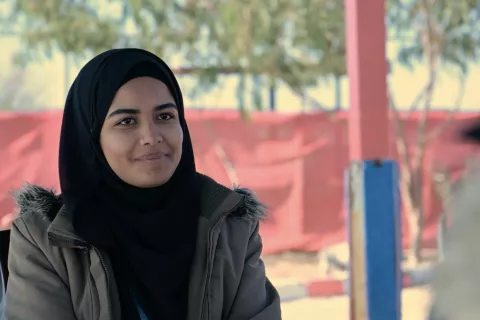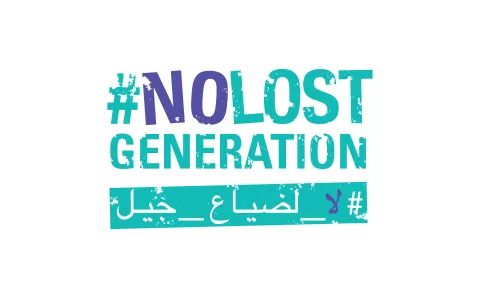Fostering wellbeing through education in Northeast Syria
War Child
No Lost Generation is marking the 10th year of crisis inside Syria with a series of blog posts shedding light on the comparative situation of children. Publishing one blog post a day, we will underline the needs of children and youth affected by the Syrian crisis and share the experience of our partners responding to their plight. We need to redouble our efforts and rethink our interventions, to shape a better future for 10.7 million children.
Six million children inside Syria’s borders are living in the midst of one of the worst humanitarian crisis situations in the world. Grave violations of children’s rights - including killing, maiming and recruitment into armed groups – are too frequent an occurrence. And the coronavirus pandemic is exacerbating the risks that Syria’s children face.
Across Syria the structures designed to keep children safe are in acute disrepair - and access to education is limited. Some 2.8 million children inside Syria currently cannot access formal education. One in three schools inside Syria can no longer be used as they were destroyed, damaged or are being used for military purposes. Threats manifest in depression, anxiety, physical and sexual exploitation, and the breakdown of social structures.
The role of Education
Education can help to counter these threats. It is proven to help maintain mental health and psychosocial wellbeing - particularly for children affected by armed conflict. It can provide stability and certainty amid violent uncertainty.
Innovative and creative solutions to bridge the learning gap are urgently required. This is why War Child Holland is working to provide children in North East Syria with access to quality education - no matter where they are.
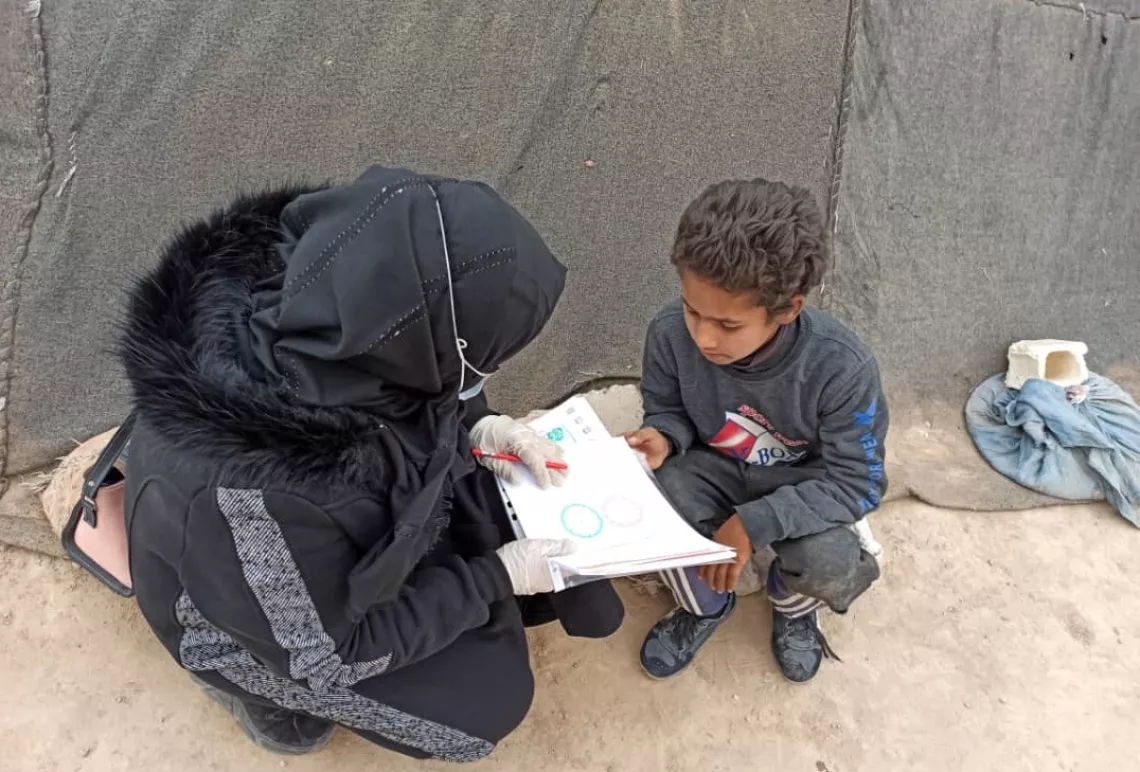
About the Programme
The programme has been designed to expand access to quality education and improve learning outcomes for children in North East Syria - particularly those living in areas that are hard to reach and underserved.
It both enhances self-study opportunities and support the most vulnerable learners affected by school closures. All learning content is aligned with the national curriculum - enabling the children taking part to re-enter formal education when the opportunity arises.
Work to adapt all content to be delivered remotely has accelerated in response to the COVID-19 pandemic - resulting in several successful innovations. ‘Study packs’ made up of lesson modules adapted for offline work were delivered directly to children in their homes either online or through socially distanced delivery. Ongoing teacher support for pupils was facilitated through the use of WhatsApp - helping to bring the classroom directly to children wherever they are.
The programme was also designed at its inception to support wider child protection efforts. War Child advisors met with case workers and supervisors each week during the programme and Case Management referral mechanisms were set up to ensure children in need of specialised support were identified and provided with appropriate services.
The measures we put in place helped ensure that children in underserved and hard to reach areas of North East Syria could continue with their learning - children like Yassin.
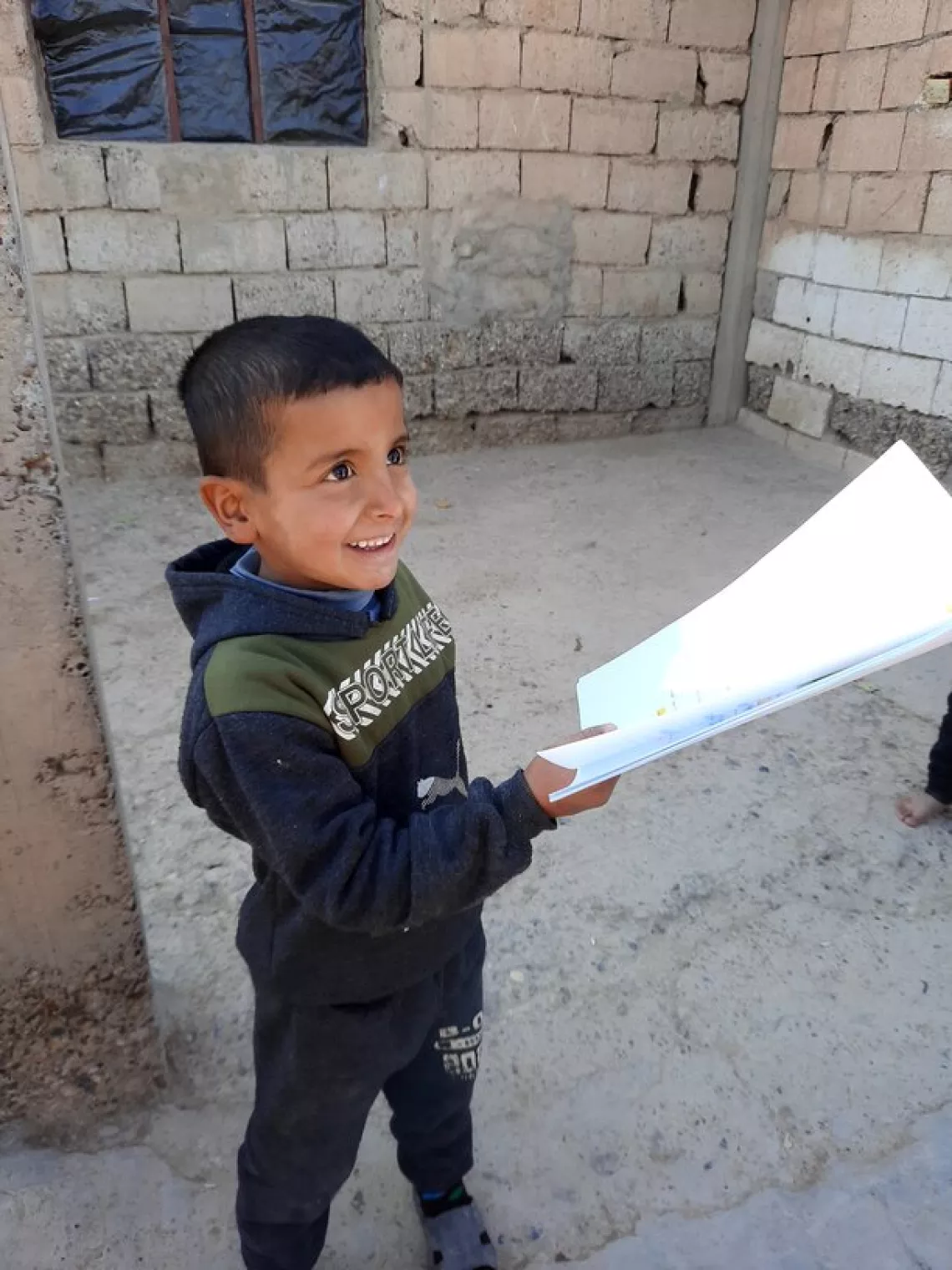
Relevant, context-specific education programmes can have a life-sustaining element - even in the most desperate of circumstances
Yassin’s story
Yassin looks far older than his ten years - in part because he is one of many children who have to go to work every day to help support their families. The unspoken dreams of these children are suffocated by the burden and responsibility they have towards their families. Yet the programme has seen Yassin begin to develop a sense of a better future.
“I am a mother of six children,” says Yassin’s mother. “I do not want my children to work but our circumstances leave me no choice. I want them to pursue their education.”
Yassin is beginning to do just that. Every evening, upon returning from work, he catches up with his WhatsApp study group and follows up on his homework. Sometimes his teacher keeps supporting him with his studies until late in the evening.
This shows that relevant, context-specific education programmes can have a life-sustaining element - even in the most desperate of circumstances.
War Child is an independent and impartial, international nongovernmental organisation investing in a peaceful future for children and young people affected by armed conflict. We support children regardless of their religion, ethnicity, social background, or gender.
For more information about War Child and its work, visit War Child and on Twitter and LinkedIn.
